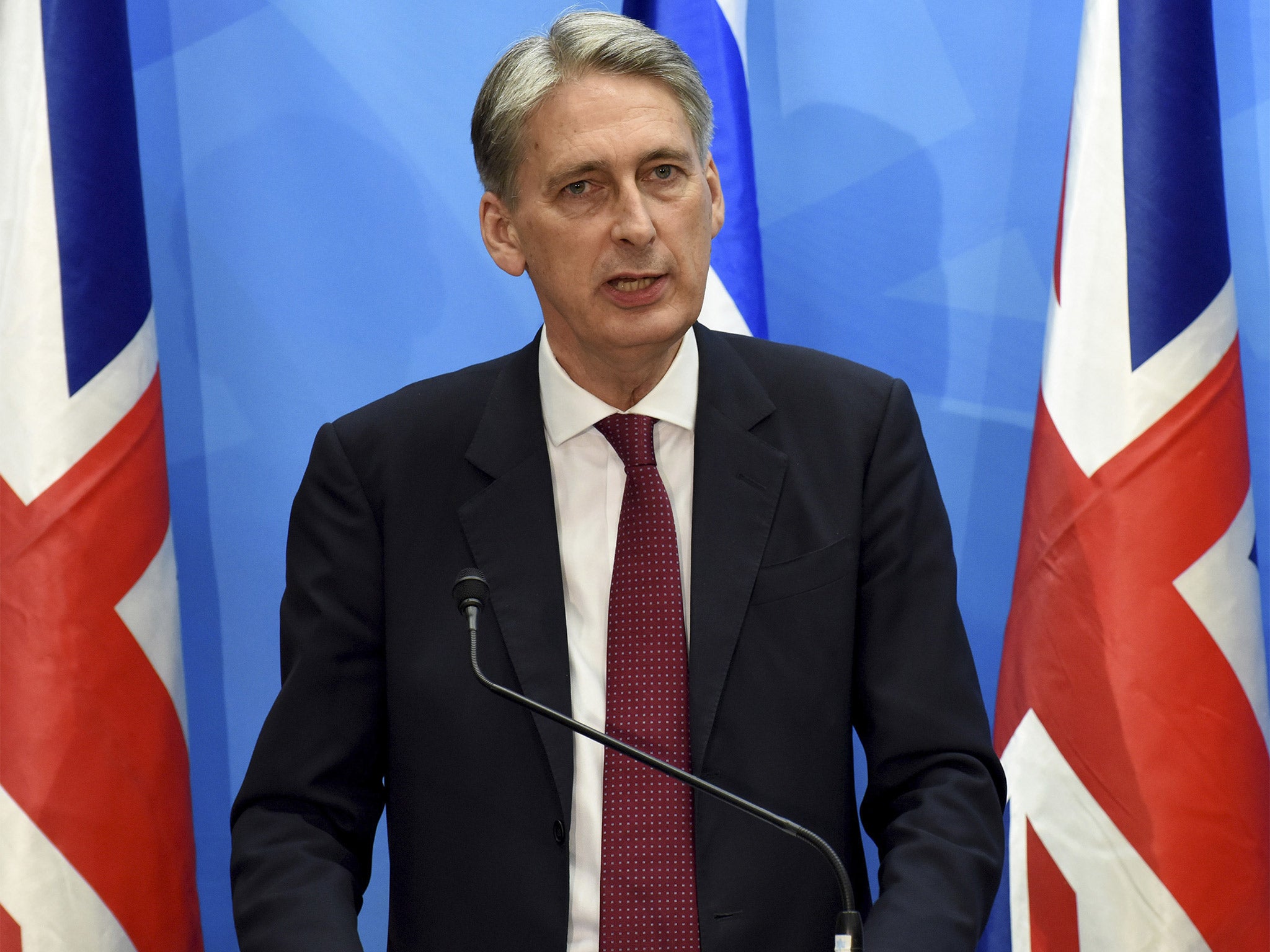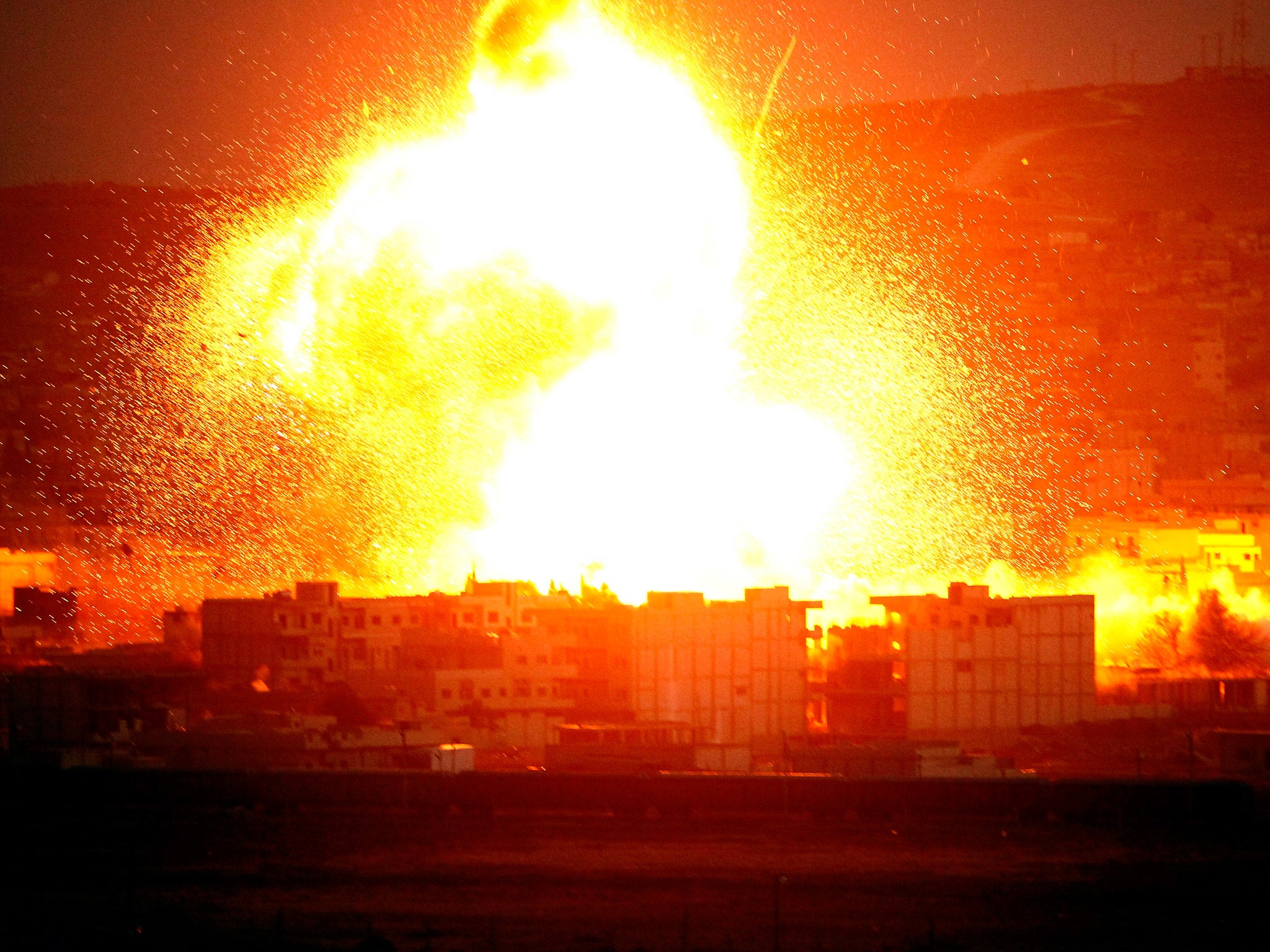Sending planes to Syria but stopping them bombing Isis is 'militarily inefficient', says Foreign Secretary
Philip Hammond is seeking support for widening air strikes against militants

Dispatching British aircraft on surveillance missions over Syria but stopping them from bombing Isis positions is “militarily inefficient”, the Foreign Secretary argued as the Government seeks to win support for launching strikes on Islamists in the country.
His intervention came as ministers face growing cross-party criticism of the strategy for halting the advance of Isis. Writing for The Independent, the former Liberal Democrat leader Lord Ashdown argues that coalition forces are losing the war against Isis because they are failing to back military firepower with diplomacy.
Ministers are preparing the ground for widening air strikes on Isis from Iraq to Syria, although they are unlikely to seek parliamentary approval until the autumn after a new Labour leader is in place.
Downing Street dismissed suggestions of an early recall of Parliament from its summer recess for a vote on allowing military action in Syria.
Philip Hammond told the Commons foreign affairs select committee that British operations stopped “at an artificial border”.

He said: “As far as the enemy is concerned, there is no borderline on the Iraq-Syria border. But we are operating on one side of it delivering lethal strike and on the other side delivering surveillance and reconnaissance.
“On any logical assessment, that is militarily inefficient. A UK surveillance asset that could be armed over Syria is operating unarmed.
“If it acquires strategy information, it’s then got to task another asset belonging to another coalition partner to go and make the strike.
“There is a simple efficiency logic about being able to conduct operations across both theatres.”
RAF Tornados and unarmed Reaper drones have flown more than 1,000 missions in Iraq and Syria and have hit more than 300 targets in Iraq since September as part of a US-led coalition. But they are prevented from launching strikes in Syria following a parliamentary vote opposing the move two years ago.
Lord Ashdown argues the West failed in Afghanistan, Iraq and Libya – and is making the same mistakes in Iraq and Syria.

“We see a problem in the world and our first instinct is to bomb it. We have become obsessed with high explosive as an instrument for peace,” Lord Ashdown says.
“We are not losing the war against Isis because we do not have enough bombs – we are losing it because we do not have enough diplomacy.”
His comments come after senior Conservatives raised doubts over David Cameron’s approach to the crisis.
Julian Lewis, chairman of the defence select committee, said Britain lacked a “coherent strategy for Syria” while Crispin Blunt, the chairman of the foreign affairs select committee, called for a “wider international strategy to take and occupy ground in Syria”.
Green MP Caroline Lucas said: “[Isis] actively wants to be seen as being at war with the West. Its core message is to present itself as the guardian of Islam under crusader attack. That is a pernicious but effective message. Stepping up our involvement in air strikes reinforces that false narrative, even if we stop short of a ground war.”
A former chief of naval staff, Lord West of Spithead, derided the Government’s handling of the disclosure that British forces have been embedded with coalition forces carrying out air strikes in Syria.
“All my experience would indicate that the handling of this situation of the embeds has been a total cock-up. When one makes a cock-up, one should just admit it, learn and move on,” he told peers.
Join our commenting forum
Join thought-provoking conversations, follow other Independent readers and see their replies
Comments